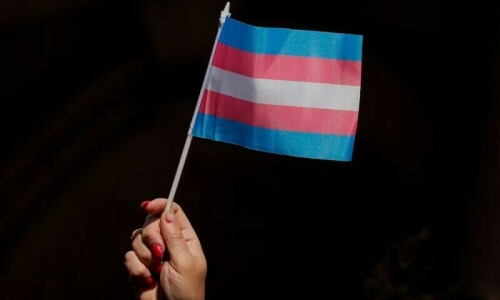
Faiz Ahmed Faiz, though never a cardholder of the Communist party, was a leftist in no uncertain terms. As a young lecturer at MAO College in 1935 in Amritsar he befriended two writers, both devout communists, Dr Rasheed Jahan and her husband Mahmooduz Zafar in whose company and those of other like-minded people he became all the more conscious of the plight of farmers and workers alike.
For sometime he was with the British army but then came Partition and Faiz took to journalism. He sided with the downtrodden and when the All Pakistan Trade Union Federation was formed he became its general secretary. The president of the organisation Mirza Ibrahim, who was a high ranking office bearer of the All India Trade Union Congress was also part of the old guard. In 1949 Faiz led Pakistan’s delegation to the annual conference of the International Labour Organisation at Geneva.
My own relationship with Faiz sahib was that of a demigod and a devotee. An ardent fan of his social and political views, his poetry and his personal qualities, I lost no opportunity to meet him. I was at the All Pakistan Kisan Conference held at Toba Tek Singh in early 1970 about which Faiz wrote a remarkable piece for Lail-o-Nihar (when the magazine was revived briefly). Faiz believed collecting a very large number of people was a laudable effort but what was missing in the speeches was a solid analysis of the problems faced by farmers.
About the same time there came a cleavage among the leftists, Faiz was one of those who were called “pro-Moscow”, who believed that change would come through elections, while the “pro-Maoists”, to which youngsters like Taj Hyder and myself belonged, thought that strong actions were needed to bring about meaningful changes. We were convinced that by contesting elections we would be playing into the hands of the capitalists.
Much to our dismay we heard that Faiz was being taken for a ride and that he was contesting for a seat from Lyari. At a meeting in Katrak Hall where he was addressing political workers, four of us including Hyder, Abid Ali Syed, Justice (retd) Rasheed Rizvi and myself, we started raising slogans and were successful in disrupting the proceedings. Faiz had to leave.
After a few euphoric moments, we realised that we had done something terribly wrong, more so since the aggrieved party was none other than our idol Faiz sahib. The next morning we went to his house and told his wife Alys, who answered the doorbell that we wanted to meet her husband and apologise profusely. She went in returning with the news that Faiz was just not willing to see us. “OK so we will sit on the doorstep and will not leave until he sees us,” we said. An hour or so later Faiz called us inside and after a word or two of admonishment recited his poem “Sochne Do”, which conveyed his viewpoint vividly.
I had the opportunity to meet him more often when I was an understudy of Sadequain. I was learning the art of calligraphy from the great artist, who was Faiz’s friend. One incident I will never forget is when an admirer of both men invited the three of us to the Karachi Gymkhana for lunch, but the watchman at the gate did not let them in because they were wearing kurta pyjamas. I was in trousers and so was allowed inside. This was before Zulfikar Ali Bhutto had popularised the awami (national) dress. The highly embarrassed host rushed out and took us to lunch at a nearby restaurant. He was apologetic about the incident but was put at ease by Faiz, who said that the rules and regulations of any place had to be abided. That was the soft side of a man, who never reconciled when it came to his principles. (As narrated to Asif Noorani)











































